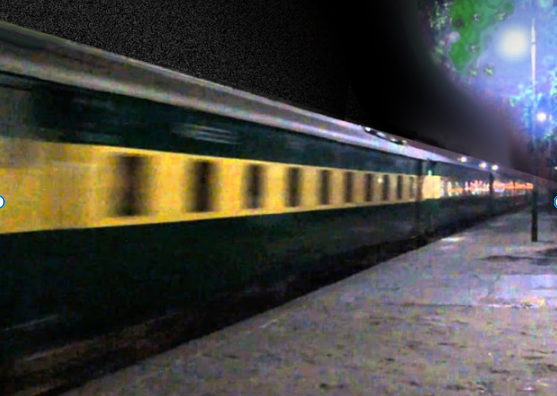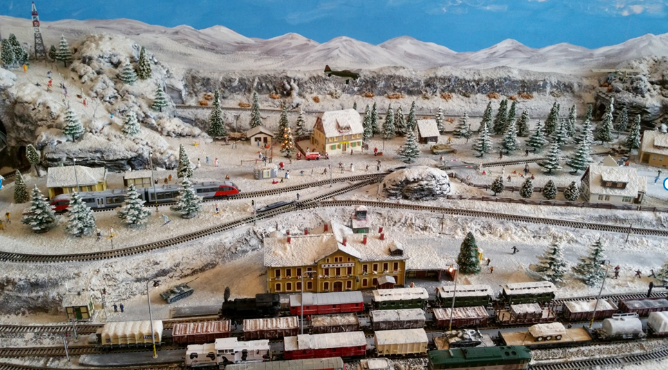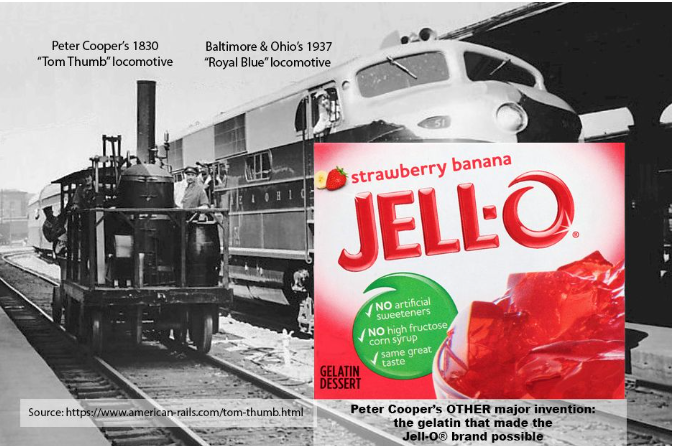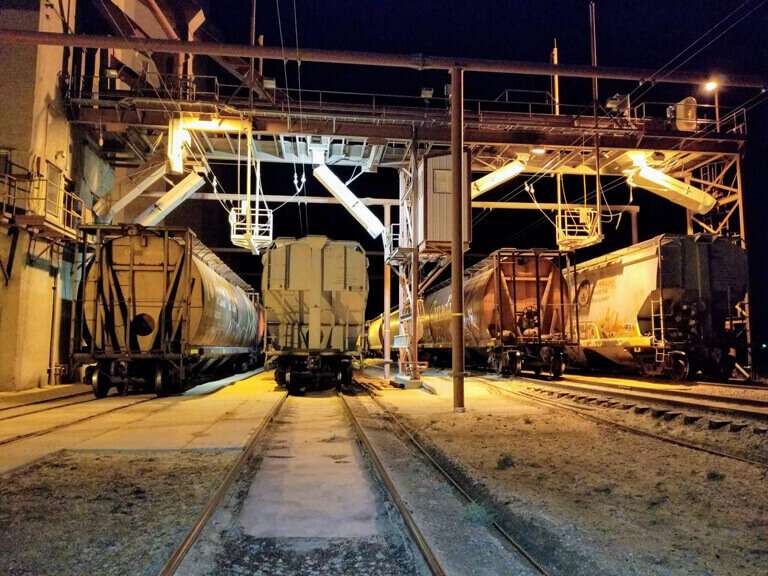When I told one of my associates at Standard Rail Corporation that I had loved railroads and trains since I was a child, he told me that I had just self-identified as “a foamer.” “What’s that?” I asked him. “Foamers are folks like you, people who are charmed by the romantic sensibilities that railroads inspire.”
Guilty as charged. I guess I’m a foamer.
My interest in trains was first inspired by my father’s decision to give his four-year-old son an exorbitant Christmas gift: a Lionel train set, complete with a locomotive that whistled and belched smoke out of its stack whenever a small white pill was dropped into its opening. A few years later, in my last year in grammar school, a friend and I often stood beside a Class One railroad line, waiting to exchange waves with the engineer who drove a passing freight train. After it passed, we’d recover the precious pennies we’d left on a track, to marvel at how it had been flattened by the enormous pressure generated by the locomotive’s wheels.
But by then I had already had my first chance to ride in the coach of a passenger train, to be charmed by the comforting clacking of the wheels as they passed over rail joints, and the rapid passage of the scenery through which we rode. Here’s the story of that ride:

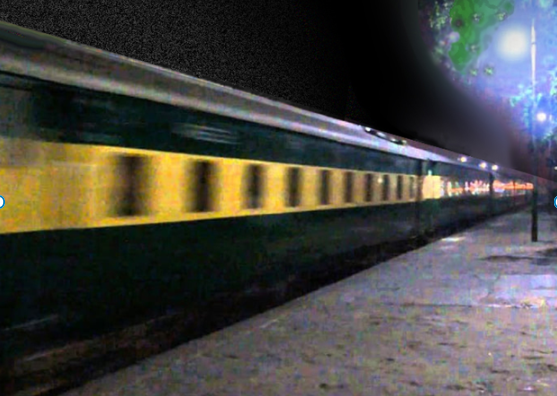
- WAR VETERANS
I felt it as we worked at a Victory Garden in a vacant lot across the street from our apartment house. Or as I scanned the street gutters to retrieve discarded gum wrappers and cigarette packages that contained metal foil. This valuable material might be recycled, I was told. “It’s for the War Effort, you know…”
I still get choked up when I remember hearing about the landing at Normandy on our family radio. I was told that hope had returned, that victory was near. At last, my fear could fade. Not that I didn’t trust my parents to protect me in any event. I was their only child. My conception and caesarian delivery nearly killed my mother, as she had known that it might. So, I was their little treasure, for whom all might be sacrificed.
Shortly after the war ended, I took my first intercity trip. We traveled by train, on a night coach to Cleveland. Dad’s salary as a teacher put roomettes or even Pullman cars out of reach. And of course, Mom didn’t work; Dad was too proud for that. We left from Chicago’s Union Station to join one of my cousins in Ohio. Her husband had just returned from piloting bombing runs over Germany. He was a very lucky man: nearly two out of three such pilots were killed in the war.
That night, our coach seats were near the front of a car filled with demobilized troops. Most were Army, Navy, or Marine veterans returning home from service in the Pacific Theater. And I was the first American child they had seen since leaving their own families behind. That’s how a minor miracle happened.
With my parents’ consent, I was passed over Dad’s head to the trooper sitting in the next row behind us. He immediately purchased a candy bar from the car’s Porter for me. Baby Ruth? Butterfinger? Clark bar? One of them; I can’t recall. All were my favorites. I sat in his lap and had a few bites when suddenly the trooper behind my first sponsor asked if I could be shared with him, too. And in nearly no time at all, I was passed hand-over-head all the way down to the end of the car, to be coddled and treasured by the kindest group of strangers I’d ever encountered.
Of course, I was showered with candy bars as well. The goodies carried in the box at the porter’s waist was soon emptied of all of the treats that I was invited to specify. When my father finally retrieved me from the kindness of these men, I think I had stayed up later than I ever had before. Despite all the sugar I’d eaten, I was told that I fell asleep in my mother’s arms almost as soon as I found my way into her lap.
The phrase that today’s parents must teach – “stranger danger” – seems sad in light of this memory. Americans once shared trust, unity, and a patriotically harmonious spirit. It was supported by common courage and mutual respect. These people really were “The Greatest Generation.”
Can we ever recover that spirit again?
- OFF TO MY OWN WAR
My Army Reserve service required me to spend only six months on active duty, including two months in “basic training.” This would teach me how to salute, march in formation, how to handle, fire, and clean my rifle, throw a live grenade without killing myself, crawl under barbed wire at night with live machine gun rounds whizzing over my head. Fun stuff like that, along with occasional “KP duty.” That “kitchen police” service usually meant peeling potatoes, cleaning out grease traps, or spooning out “chow” to men passing in lines. When training days ended, we’d head off to a commissary to get some “near beer” to drink. This beverage had half of the alcohol content that civilian beers usually delivered. After the six active-duty months had passed. I needed to attend weekly Reserve unit meetings for a total of six years.
Before that, in early October of 1964, my first Army orders called for me to once again depart on a night train from Chicago’s Union Station. This time, I’d get to ride in a berth on a Pullman Sleeper car, all the way down to the training base at Fort Leonard Wood in the Ozark mountains of central Missouri. All upper and lower berths on the car soon filled with young men like me, all destined for the same basic training experience. I soon fell soundly asleep, only to be awakened by the voice of a man shouting at us.
The train had apparently arrived at its destination. It was an ungodly early hour; we soon saw that dawn was just breaking. The man angrily yelled that he was Sergeant Jackson: “I am your drill instructor of the day. Now get on your worthless duds, use the john if you must, and line up outside of this train. Hurry up, hurry up, HURRY UP!”
The train appeared to have entered the Army base. Our Pullman car sat next to a boardwalk platform. We arranged ourselves in a line flanking the train as Jackson demanded. This was a man who knew very well how to intimidate anyone.
“You MEN will now take the Oath which will officially join you to the United States Army. Raise your right hand, and repeat after me: I — state your full name — do solemnly swear…
… that I will support and defend the Constitution of the United States against all enemies, foreign and domestic…
…that I will bear true faith and allegiance to the same…
…and that I will obey the orders of the President of the United States…
…and the orders of the officers appointed over me, according to regulations and the Uniform Code of Military Justice.
…So help me God.”
It was a solemn occasion; I felt myself moved to honor my oath for the rest of my life.
“Alright, MEN, now pick up your little suitcases and follow me. I’m going to introduce you to an Army technician. He’s going to begin to make you look like a real soldier.” Sergeant Jackson led all of us to sit in turn as an Army barber took less than a minute to buzzcut all of the hair off of each of our heads.
Next, we were led through a cavernous warehouse where we were issued duffel bags which we filled up with the dress clothing, fatigues and boots. We would use these instead of our ‘civvies’ for most of the next several months. Finally, we were assigned to a bunk on the floor of a stark wooden barracks that had been constructed at the start of the Second World War. Jackson did prove to have sense of humor when he showed us the primitive trench urinals in the latrines: “No pissing on food!” he commanded.
Six years later, my Reserve unit had not been called up to active-duty service in Vietnam. By the time I earned an honorable discharge I had become a non-commissioned officer myself, a Staff Sergeant E6 in rank
Long story made short, I’m sure none of my fellow basic trainees understood the reasons that our egos needed to be torn down and rebuilt, in accordance with Joseph Campbell’s monomyth of “the hero’s journey.” We were about to embark on an epic adventure, in which we would be made to become more than we had been. And too many of the fine young men I trained with, disproportionately drawn from humble rural or Southern backgrounds, would be sent into the meat grinder in Vietnam’s jungles, never to return home fully whole. God bless them all.
- MY LAST COACH RIDES STOPPED IN THE SUBURBS
There was nothing romantic about those trains. I do remember one of those rides home, as we passed through nearby buildings which had been set on fire. This was in the midst of the 1968 urban riots produced by the assassination of Martin Luther King. At one point, a bullet punched through a coach window, narrowly missing the passenger who sat beneath its passage. His response was to calmly pull down the vintage wicker shade which that old “el” car still had. These shades were meant to let passengers sit shadowed from the heat of the sun.
Or to give them the protection of invisibility from snipers.
In a few years, I had become a managing partner in an even bigger ad agency, with a home in a swank “North Shore” Chicago suburb. This lifestyle called for me to commute back and forth on double-decker railroad coach cars that arrived at and left from that same Union Station. I wore the standard costume of my trade: a three-piece suit and Windsor-knotted rep-striped necktie, preferably purchased from Brooks Brothers. Most of my fellow train riders dressed in the same uniform and rode alone, in silence. We each read our newspapers and sipped from the cups held in armrests at our sides. The cups held coffee in the morning and beer or a cocktail for the train ride back home. David Reisman’s “The Lonely Crowd” book described my commuter companions quite well.
After thirteen years, my first marriage came to an end. I decided to move to another ad agency job, this one in San Francisco’s downtown financial district. At first, the woman who was to become my second and final wife and I lived in an apartment in the city’s Pacific Heights area. My commute to the office from there was made on a cable car, a funicular railway system that really paid off big on romance points for a foamer like me.
My last corporate jobs saw me working in automobile country, in Southern California. My railcar riding days were finally behind me. And now, as a semi-retiree in my home in a suburb of Phoenix, Arizona, I get to occasionally enjoy the sound that inspired Paul Simon: “Everybody loves the sound of a train in the distance…” In a final, wonderful irony, I have discovered that my four-year-old grandson is a foamer, too. He loves to dress up like a train engineer. He wears this outfit whenever his mom takes him to visit the miniature railway at the Travel Town park near his home. I treasure a picture of him standing at the fence next to the tracks, waving at the locomotive’s engineer as he passes by.
What does all of this mean? Once more, perhaps Paul Simon’s song puts it best:
What is the point of this story?
What information pertains?
The thought that life could be better
Is woven indelibly
Into our hearts and our brains…
# # # # #
